SUMMARY
This is AI generated summarization, which may have errors. For context, always refer to the full article.
![[OPINION] Education and science: The dream of Philippine sustainability](https://www.rappler.com/tachyon/2021/04/imho-educ-science-sq.jpg)
The road to sustainability has taken a significant detour in the form of the COVID-19 pandemic. The now year-long crisis has exposed the fragility of current socioeconomic systems when facing environmental threats and is projected to adversely impact the development of many countries, especially developing nations such as the Philippines.
Given this context, it is imperative to assess the current perspective of citizens globally on attaining sustainable development. As stakeholders to the type of present and future being shaped by the decisions and actions of today, their voices are most important for determining how humankind will overcome challenges such as COVID-19 and ensure that no one is left behind.
Where the world stands
A recent UNESCO survey revealed that climate change and loss of biodiversity was seen across all regions as the gravest global challenge against a peaceful society by 2030. Respondents identified among their top concerns under this challenge increasing natural disasters and extreme weather events, loss of biodiversity and impact on people, and pollution of the ocean and rising sea levels.
Among the next most highlighted global challenges are violence and conflict, discrimination and inequality, lack of food, water, and housing, and health and disease. While international cooperation is seen as a necessity for addressing these issues, only 25% of the respondents expressed that they were confident about the success of global actions.
Education is regarded as the top solution for addressing global challenges, from climate change and loss of biodiversity, to disinformation and freedom of expression. This reflects a common global view regarding the significance of education not only for its own value, but also as a means to address the impacts of various issues.
This recognition comes at a time when the COVID-19 pandemic has effectively changed the learning modalities for up to 1.6 billion students worldwide and placed tremendous burden on teachers. Consequently, education and learning and the relationship between humans and nature emerged as the two areas of society that needs the most rethinking in light of the health crisis.
It is evident that education needs to be reoriented to enable nurturing respect for other human beings and the environment, human rights, gender equality, cultural diversity, and peace and non-violence. The transformation of content and practice of education is necessary to equip current and future generations to understand the growing complexities and interlinkages among global and local issues alike, and renew confidence in addressing them.
The survey also showed science and science-based solutions as the second most-chosen solution against global issues. Respondents identified specific urgent and effective actions such as investing in green technologies and sustainable economies, building trust in science-based decisions, creating protected natural zones, and knowledge-sharing practices.
Science-based decision-making is necessary for addressing crises with significant environmental implications, most notably the COVID-19 pandemic and climate change. Science, coupled with education, serves as a bridge between the many stakeholders developing or implementing solutions to these issues and their associated effects.
What it means for Filipinos
Should current trends continue, achieving the Sustainable Development Goals (SDGs) becomes a more distant dream for the Philippines. Its economy is currently in the worst recession in the country’s post-war history, with its 2020 gross domestic product dropping by 9.5%. The impacts of this recession would be felt for years, especially if the national government continues its failure of curbing the spread of COVID-19 in the months to come.
Two key elements for resolving key social, economic, and environmental issues, education and science-based solutions, are in a state of decline in the Philippines. A 2020 report reveals that SDG 4 (quality education) faces significant challenges in key indicators such as enrolment rate and completion of secondary education. The well-documented struggles of both students and teachers across the country pre-COVID have only been worsened by the pandemic, which would prevent the nation from achieving its medium-term development goals.
The relatively poor scores by the Philippines in SDG 3 (good health and well-being), SDG 9 (industry, innovation, and infrastrucutre), SDG 14 (life below water), and SDG 15 (life on land) reflect the lack of consistent science-based decision-making needed for national development. This has been supported by questionable decisions by the current administration, including the poor handling of the pandemic, the infamous dolomite beach along Manila Bay, and the insistence on establishing a Department of Disaster Resilience.
Nothing short of a transformative shift in the culture of education and science is needed to be initiated by the Philippine government for COVID-19 recovery and attaining genuine sustainability. Such a shift will take more than just one year to accomplish, but it is imperative for our leaders to urgently change its brand of political will not just towards building physical infrastructures. What is needed, rather, is for the development of ecological citizenship, a culture of individual responsibility for others and our environment, with a focus on the social justice of our actions.
However, it is unlikely that President Duterte and his allies will veer away from their populist style of rule, the core principles of which are in contrast to the goals and operationalization of education and science. This makes our choices for the upcoming 2022 elections even more important, if we as a nation are truly serious about ending our collective problems.
Education and science form the foundation on which to build the road to sustainable development. Until we collectively learn this lesson, more Filipinos will be left behind, and so will the Philippines from the rest of the world. – Rappler.com
John Leo is the Deputy Executive Director for Programs and Campaigns of Living Laudato Si’ Philippines and a member of the interim Secretariat of Aksyon Klima Pilipinas. He has been a citizen journalist, writing on climate and environment issues since 2016.
Add a comment
How does this make you feel?

![[OPINION] How science can rise over populism](https://www.rappler.com/tachyon/2020/10/science-over-populism-october-26-2020.jpg?fit=449%2C449)
![[OPINION] Why a Department of Disaster Resilience should not be created](https://www.rappler.com/tachyon/2020/11/imho-ddr.jpg?fit=449%2C449)
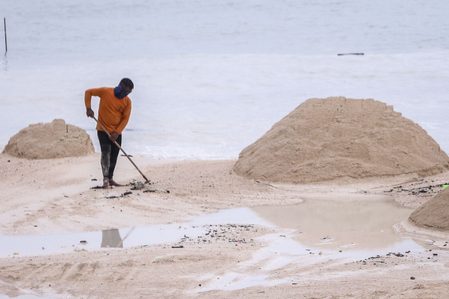
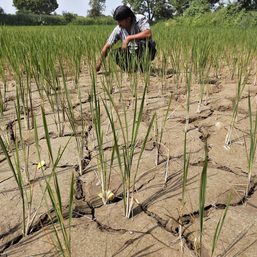
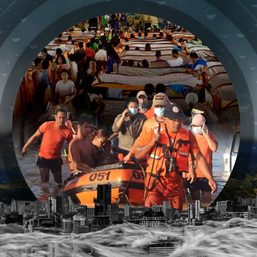
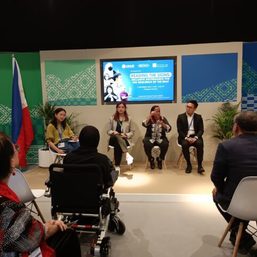
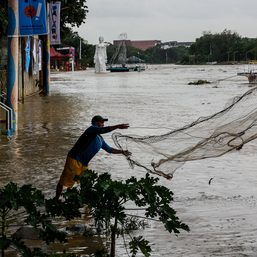
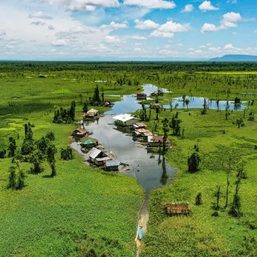
![[Time Trowel] Mentorship matters](https://www.rappler.com/tachyon/2024/04/mentorship-matters.jpg?resize=257%2C257&crop_strategy=attention)
![[OPINION] Education for life: Weaving ethics in all subject areas](https://www.rappler.com/tachyon/2024/03/Education-for-Life-Weaving-Ethics-in-All-Subject-Domains.jpg?resize=257%2C257&crop_strategy=attention)
![[OPINION] Limited intake of international students: Is Canada knee-capping its future?](https://www.rappler.com/tachyon/2024/02/tl-canada-forgeign-student-cap-02232024-2.jpg?resize=257%2C257&crop_strategy=attention)
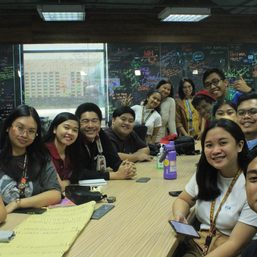
![[Rappler Investigates] Who’s fooling who?](https://www.rappler.com/tachyon/2024/02/rodrigo-sara-duterte-2019.jpeg?resize=257%2C257&crop=167px%2C0px%2C900px%2C900px)
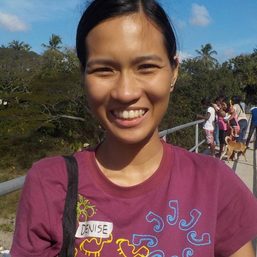
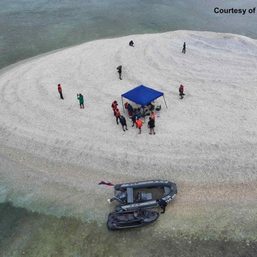
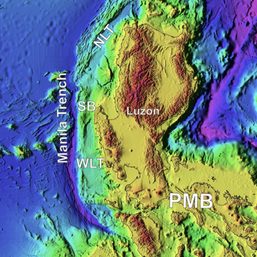
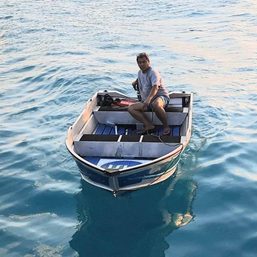
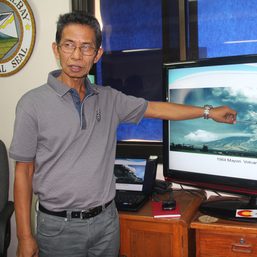
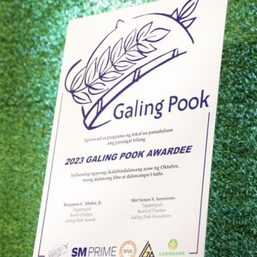
![[Newsstand] The Marcoses’ three-body problem](https://www.rappler.com/tachyon/2024/04/tl-marcoses-3-body-problem.jpg?resize=257%2C257&crop=451px%2C0px%2C1080px%2C1080px)
![[Edgewise] Preface to ‘A Fortunate Country,’ a social idealist novel](https://www.rappler.com/tachyon/2024/02/a-fortunate-country-february-8-2024.jpg?resize=257%2C257&crop_strategy=attention)
![[New School] When barangays lose their purpose](https://www.rappler.com/tachyon/2024/02/new-school-barangay.jpg?resize=257%2C257&crop=414px%2C0px%2C1080px%2C1080px)
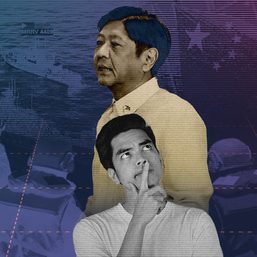
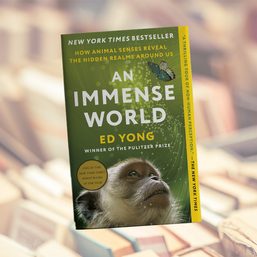

There are no comments yet. Add your comment to start the conversation.